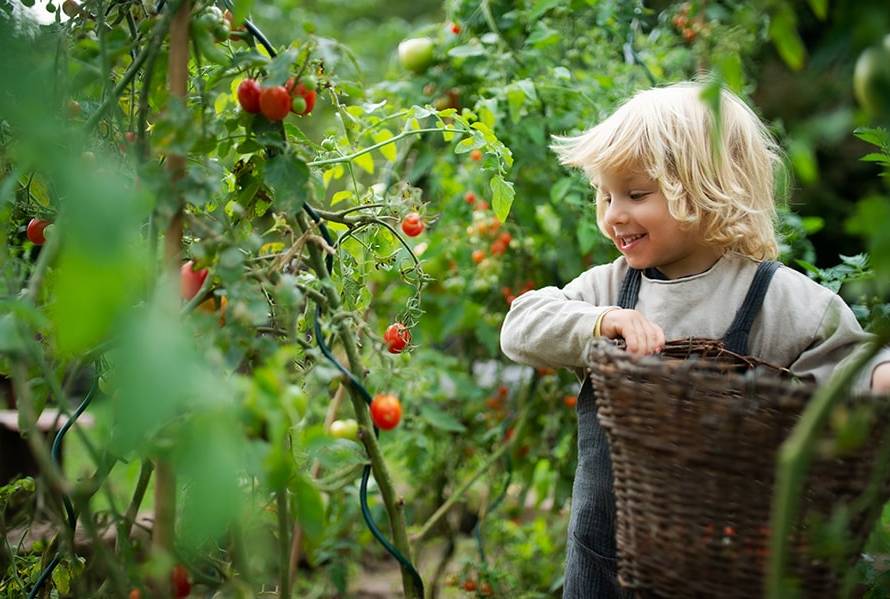Drought has become one of the most significant challenges threatening agricultural production worldwide, exacerbated by climate change. As one of the largest consumers of water, agriculture must adopt solutions that optimize water use in the face of growing drought risks. This article explores innovative solutions for water management and efficiency in agriculture, focusing on ensuring the sustainability of agricultural production while combating drought.
Drought and Agriculture’s Water Needs
Drought significantly impacts agricultural production, particularly in regions with limited water resources. Water availability is critical for sustainable agriculture, but climate change has intensified water scarcity in recent years. Efficient water management in agriculture is crucial to mitigate the effects of drought on farming while promoting a healthy ecosystem that supports plant growth.
Innovative Solutions for Water Efficiency in Agriculture
To improve water efficiency, the agricultural sector has embraced various innovative solutions. Here are some of the most effective techniques:
1. Drip and Micro Irrigation Systems
Drip irrigation minimizes water loss due to evaporation and runoff by delivering water directly to plant roots. This method uses 30-70% less water than traditional irrigation systems while maintaining the same yield levels, making it a preferred method in arid regions. Similarly, micro-irrigation systems provide water precisely where it is needed, preventing excessive usage.
These systems ensure that plants receive only the necessary amount of water, optimizing resource utilization. Although initial installation costs can be high, the long-term benefits of water conservation and increased productivity make these systems indispensable for sustainable agriculture.
2. Smart Irrigation Systems
Smart irrigation systems use sensors and data analysis tools to monitor plants’ water needs in real-time. These systems measure soil moisture, air temperature, and plant growth conditions to determine the optimal timing and amount of irrigation. By preventing overwatering, smart irrigation systems significantly reduce water wastage.
Such systems are especially beneficial for large-scale farming, allowing farmers to manage water use efficiently. By tailoring irrigation to soil moisture levels, smart systems play a crucial role in combating drought while boosting agricultural productivity.
3. Hydroponic and Aquaponic Systems
Hydroponic and aquaponic systems, known as soilless farming methods, drastically reduce water usage. In hydroponics, plants are grown in nutrient-rich water solutions instead of soil, while aquaponics integrates fish farming into the system. Both methods use up to 90% less water than traditional farming techniques.
These systems are particularly effective in water-scarce regions, providing sustainable solutions for agricultural production. The closed-loop water cycle makes these systems highly efficient and environmentally friendly, promoting water conservation in farming.
4. Soil Health and Moisture-Retaining Materials
Improving the soil’s ability to retain moisture is a key strategy for conserving water. Organic materials and biological fertilizers enhance soil’s water-holding capacity. Additionally, polymer-based moisture-retaining agents can help keep water in the soil for longer periods.
Healthy soil absorbs water more effectively, providing plants with sustained hydration and increasing their resilience to drought stress. These practices enhance water efficiency and contribute to a more sustainable farming system.
5. Rainwater Harvesting and Water Collection Techniques
Rainwater harvesting is another critical method for supporting agriculture in drought-prone areas. By collecting and storing rainwater, farmers can supplement irrigation needs, reducing dependency on groundwater resources and supporting the natural water cycle.
Rainwater harvesting offers an economical solution, especially for small-scale farmers. Even basic systems can capture significant amounts of water, supporting agricultural productivity in water-scarce regions.
The Importance of Water Management in Future Agriculture
Water management will become increasingly vital as climate change and growing water scarcity challenge agricultural production. Smart farming solutions, including sensors, artificial intelligence, and data-driven analysis tools, can enhance water efficiency in agriculture. Expanding the use of water-saving systems will support sustainable farming practices and offer solutions to combat drought.
Additionally, government support and agricultural policies focused on water conservation are essential. Programs that incentivize water-efficient farming methods and educate farmers on sustainable practices will play a significant role in preserving water resources. Prioritizing water management in agriculture is crucial for long-term food security and a sustainable agricultural system.
Toward a Sustainable Future: Water Efficiency in Agriculture
Drought and water scarcity will remain significant threats to agricultural production and food security in the future. Implementing water-saving methods is critical to mitigating these challenges. Solutions such as drip irrigation, smart irrigation systems, hydroponic farming, and rainwater harvesting improve water management in agriculture and provide sustainable responses to drought.
As future farming embraces efficiency and eco-friendly technologies, conserving water resources will remain a priority. Adopting water-efficient solutions in agriculture is a vital step toward maintaining economic and ecological balance in the sector. Sustainable farming not only enhances productivity but also preserves natural resources, ensuring a healthy world for future generations.





